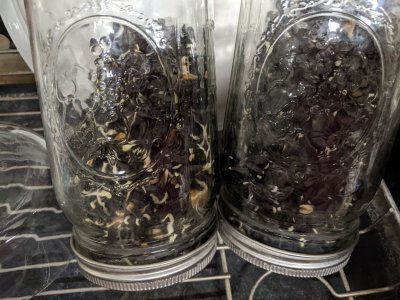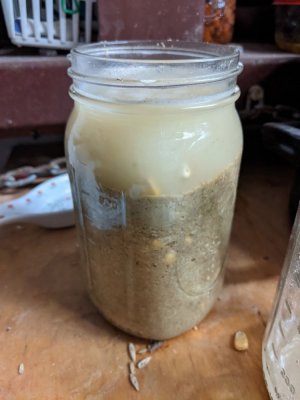HornyToadAcres
Lovin' The Homestead
I'm sure y'all have talked this to death already somewhere but i just wanted to say WOO HOO for fermenting chicken feed!
I just started doing it a month ago and my feed use has been cut by 75%.
Not just from fermenting the feed but because I don't have every bird from 5 miles around eating my chicken feed now.
Currently have just a very small flock so I am fermenting in mason jars in my kitchen. I will move to the bucket
when I get my new chicks in March,
If you have chickens and haven't tried fermenting their feed, I'd encourage you to give it a go.
I've also started sprouting my BOSS instead of just flinging them hither and yon for everyone.
I give a few of those to my bunnies as well.

I just started doing it a month ago and my feed use has been cut by 75%.
Not just from fermenting the feed but because I don't have every bird from 5 miles around eating my chicken feed now.
Currently have just a very small flock so I am fermenting in mason jars in my kitchen. I will move to the bucket
when I get my new chicks in March,
If you have chickens and haven't tried fermenting their feed, I'd encourage you to give it a go.
I've also started sprouting my BOSS instead of just flinging them hither and yon for everyone.
I give a few of those to my bunnies as well.


